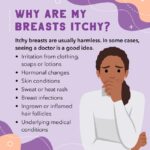Feeling that wave of drowsiness wash over you after a satisfying meal is a universal experience. Whether it’s the Thanksgiving turkey coma or the afternoon slump after lunch, this post-meal sleepiness, scientifically known as postprandial somnolence, is a common phenomenon. But what exactly causes this urge to nap after eating? Is it just about digestion, or are there more complex factors at play?
You might have heard the old adage that blood rushes away from your brain to your stomach to aid digestion, causing sleepiness. However, modern science has debunked this as a myth. The real reasons behind postprandial somnolence are a fascinating interplay of various bodily processes and lifestyle factors. While you might not be able to completely eliminate this post-meal fatigue, understanding the causes can help you manage and minimize its impact.
Decoding Postprandial Somnolence: The Science Behind the Sleepiness
Postprandial somnolence is the technical term for the feeling of sleepiness or drowsiness that occurs after eating a meal. This is particularly noticeable in the early afternoon, coinciding with what’s often referred to as the “post-lunch dip.” Research has identified several biological mechanisms that contribute to this after-meal fatigue:
- Increased Blood Sugar and Insulin Response: Eating, especially meals high in carbohydrates, leads to a rise in blood sugar levels. In response, your pancreas releases insulin to help your cells absorb this sugar for energy. This process can trigger the release of tryptophan, an amino acid, into the brain. Tryptophan is a precursor to serotonin and melatonin, neurotransmitters that promote relaxation and sleepiness.
- Vagal Nerve Activation: Digestion stimulates the vagal nerve, which runs from your brain to your digestive system. Activation of this nerve can lead to a decrease in heart rate and blood pressure, promoting a state of relaxation and potentially drowsiness.
- Hormonal Changes: Beyond insulin, other hormones like cholecystokinin (CCK) are released during digestion. CCK is involved in satiety and digestion but also has sedative effects, contributing to post-meal sleepiness.
- Circadian Rhythm Influence: Our natural sleep-wake cycle, or circadian rhythm, plays a role too. Many people experience a natural dip in alertness in the afternoon, which can be amplified after eating lunch.
Scientists believe that postprandial somnolence might have evolutionary roots, potentially serving to direct the body’s resources towards digestion and energy conservation after a meal.
Is Post-Meal Sleepiness Normal?
Feeling slightly sleepy after eating is indeed very common. Most people experience it to some degree, particularly after larger meals or during the afternoon. However, the intensity varies from person to person. Some individuals are more susceptible to the post-lunch dip, while others barely notice it. Interestingly, “night owls” and individuals with Attention Deficit Hyperactivity Disorder (ADHD) might be less affected by postprandial somnolence.
While occasional post-meal drowsiness is normal, it’s important to distinguish it from excessive daytime sleepiness. If you consistently experience intense sleepiness after meals that disrupts your daily life, or if it’s accompanied by other symptoms like nausea, brain fog, or dizziness, it could indicate an underlying issue. Conditions like insomnia, sleep apnea, neurological disorders, endocrine imbalances, and mood disorders such as depression can manifest as excessive daytime sleepiness. In such cases, consulting a healthcare professional is advisable.
Foods That Can Amplify Post-Meal Sleepiness
While the act of eating itself can contribute to postprandial somnolence, the type of food you consume plays a significant role in how sleepy you feel afterwards. Certain food categories are more likely to induce drowsiness than others:
- High-Fat Foods: Meals rich in fat have been consistently linked to increased feelings of fatigue. High-fat foods can take longer to digest, potentially leading to prolonged digestive processes and associated drowsiness. Furthermore, diets consistently high in fat can negatively impact nighttime sleep quality, exacerbating daytime tiredness. Examples of high-fat foods to be mindful of include fried foods, pastries, pizza, potato chips, and processed meats.
- High-Carbohydrate Foods: Consuming meals high in carbohydrates, particularly refined carbohydrates, can also contribute to post-meal sleepiness. These foods cause rapid spikes and drops in blood sugar levels. The initial surge in blood sugar can be followed by a crash, leading to fatigue and lethargy. Foods and drinks high in processed sugars and starches, such as sweets, sugary juices, and white bread, are prime examples.
You might have heard the myth that turkey, due to its tryptophan content, is the sole culprit behind Thanksgiving food comas. While turkey does contain tryptophan, it’s not the primary reason for post-meal sleepiness. Tryptophan is converted into melatonin and serotonin, sleep-promoting hormones. However, the drowsiness after large holiday meals is more likely due to the sheer volume of food and the combination of high fat and carbohydrate content, rather than just tryptophan alone. “Heavy” meals, packed with calories from both fat and carbohydrates, are the real recipe for postprandial somnolence.
Other Factors Contributing to Sleepiness After Meals
Beyond food type, several other factors can influence how sleepy you feel after eating:
- Meal Timing: The timing of your meals can coincide with your natural circadian rhythm. Eating lunch in the early afternoon often aligns with a natural dip in alertness and an increase in the body’s inclination towards sleep. This timing can amplify the effects of postprandial somnolence.
- Sleep Deprivation or Disturbed Sleep: If you’re not getting enough sleep or experiencing poor sleep quality, your sleep drive is already elevated. In this state, post-meal drowsiness tends to be more pronounced. Insufficient sleep makes you more vulnerable to the sedative effects of digestion and hormonal changes after eating.
- Blood Sugar Imbalances: Both high and low blood sugar levels can trigger fatigue. Individuals with diabetes are particularly susceptible to blood sugar fluctuations due to challenges in regulating insulin levels. Dietary choices, alcohol consumption, and changes in physical activity can also contribute to blood sugar imbalances and subsequent fatigue.
- Iron Deficiency: Low iron levels can lead to anemia and increase the risk of restless legs syndrome (RLS). RLS can disrupt nighttime sleep, leading to excessive daytime sleepiness, which can be further intensified after meals.
- Alcohol Consumption: Alcohol is a known sedative, and its sleep-inducing effects are amplified when combined with the natural drowsiness of postprandial somnolence. If you’re already sleep-deprived, alcohol’s impact on post-meal sleepiness will be even more significant.
- Chronotype: Your chronotype, or natural inclination towards being a morning person (“lark”) or evening person (“night owl”), can also influence post-meal sleepiness. Research suggests that “larks” are more likely to experience post-lunch dip and associated sleepiness compared to “night owls.”
Strategies to Minimize Post-Meal Tiredness
While you might not be able to completely eliminate postprandial somnolence, you can adopt several strategies to reduce its intensity and frequency:
- Eat Balanced Meals: Focus on meals that are balanced in macronutrients, including lean protein, complex carbohydrates (like whole grains and vegetables), and healthy fats. This helps to stabilize blood sugar levels and prevent energy crashes.
- Portion Control: Overeating puts a greater strain on your digestive system and can exacerbate post-meal sleepiness. Practice mindful eating and aim for moderate portion sizes.
- Limit High-Fat and High-Carbohydrate Foods: Be mindful of your intake of fried foods, processed snacks, sugary drinks, and refined carbohydrates, especially during lunch. Opt for healthier alternatives.
- Stay Hydrated: Dehydration can contribute to fatigue. Drink plenty of water throughout the day, including with your meals.
- Time Your Meals Strategically: If possible, avoid eating your largest meal during the time you naturally experience an afternoon dip. A lighter lunch might help minimize post-lunch sleepiness.
- Regular Physical Activity: Regular exercise can improve energy levels and reduce overall fatigue, potentially mitigating post-meal drowsiness.
- Prioritize Sleep: Getting sufficient and quality sleep is crucial. When you’re well-rested, you’re less likely to experience intense post-meal sleepiness.
- Take a Short Walk After Eating: Light physical activity after a meal, like a short walk, can aid digestion and help combat sleepiness.
When to Seek Medical Advice
If post-meal sleepiness consistently interferes with your daily life, or if lifestyle adjustments don’t provide relief, it’s essential to consult your doctor. You should also seek medical attention if you suspect your daytime sleepiness might be linked to a sleep disorder, mental health condition, or if you experience unexplained symptoms alongside fatigue, such as fever or headaches.
Seek immediate medical attention if you experience fatigue accompanied by any of the following symptoms:
- Blurred vision
- Dizziness
- Swelling
- Confusion
- Inability to pass urine
- Thoughts of self-harm
Postprandial somnolence is a common and usually harmless phenomenon. However, understanding its causes and adopting healthy eating and lifestyle habits can help you manage and minimize its impact, allowing you to stay alert and energized throughout your day.
References
- Trusted Source: National Library of Medicine, Biotech Information
- Trusted Source: National Library of Medicine, Biotech Information
- Trusted Source: National Library of Medicine, Biotech Information
Learn More About Nutrition and Sleep
Nutrition and Sleep: Diet’s Effect on Sleep
By Jay Vera Summer, May 10, 2024
Does Warm Milk Help You Sleep?
By Danielle Pacheco, May 9, 2024
Alcohol and Sleep
By Lucy Bryan, May 7, 2024

